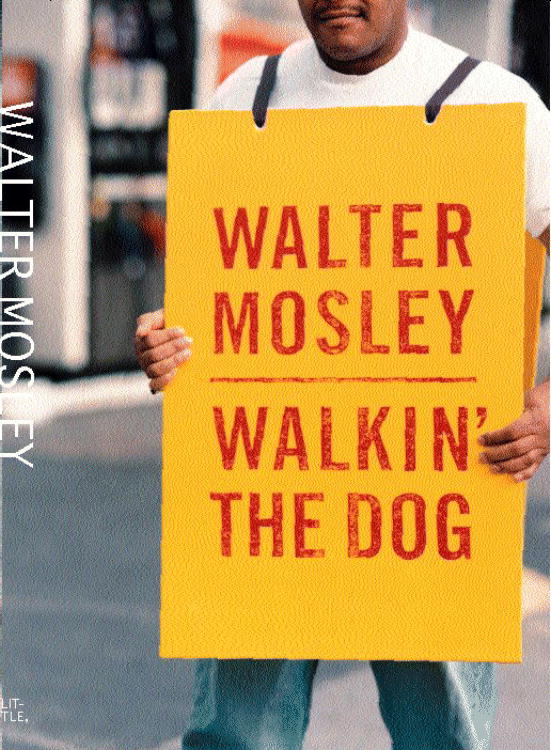
Walkin' the Dog
Socrates Fortlow Series, Book 2
فرمت کتاب
ebook
تاریخ انتشار
2008
Lexile Score
750
Reading Level
3-4
نویسنده
Walter Mosleyشابک
9780316050449
کتاب های مرتبط
- اطلاعات
- نقد و بررسی
- دیدگاه کاربران
نقد و بررسی

November 1, 1999
Mosley returns to character Socrates Fortlow (debuted in Always Outnumbered, Always Outgunned) in this follow-up collection of short stories. Fortlow is an aging ex-con, having spent more than half his life in an Indiana state penitentiary for a long-ago killing. Now, living in Los Angeles, working a menial supermarket job, Fortlow still subscribes to a prisoner's code of ethics: he is suspicious, vengeful and--above all--uncannily wise. For him, "Everything seemed to have reason and deep purpose." He's testing himself as he edges his way back into society. His boss offers him a better job, but he feels strange taking it. Meantime, he is questioned by police for a murder he didn't commit. Conversely, he kills a mugger in a confrontation and is never questioned. Serving as a role model, he fosters a young prot g , Darryl, a boy whose simmering violent nature seems all too familiar to him. Actor Winfield richly brings Fortlow's trials and triumphs to life, his voice imbuing a sense of the ex-con's heroic fatigue as he struggles to carry the weight of the world each day. Simultaneous release with the Little, Brown hardcover.

August 1, 1999
"This is life, Lydell. Life. What's done is done. You still responsible, you cain't never make it up, but you got to try" philosophizes ex-con protagonist Socrates Fortlow, whose story began in Always Outnumbered, Always Outgunned. In this installment, Fortlow, a powder keg of a man with a hair-trigger temper who must apply every ounce of self-restraint his mind can muster in order to control his violent body, becomes an unlikely social avenger, unintentionally starting a riot in protest against a rogue cop who kills and rapes blacks seemingly for fun. In terms of plot, the book is disjointed, mostly following Fortlow's workaday life. The true soul of the book seems to be the pondering of the relationship between the races; there is a Steinbeck-esque edge to Fortlow's musings on black vs. white and rich vs. poor, and he displays shades of Tom Joad, another convicted killer who desires a better world. Much of the philosophizing is perhaps a tad deep for an uneducated jailbird, but Mosley should get credit for addressing this neglected segment of society. Recommended.--Michael Rogers, "Library Journal"
Copyright 1999 Library Journal, LLC Used with permission.

Starred review from July 1, 1999
In "Always Outnumbered, Always Outgunned" (1997), ex-con and convicted murderer Socrates Fortlow fought a kind of rear-guard action to bring a little kindness into the troubled lives of the people around him in his besieged Watts neighborhood: a few vials of morphine, acquired from a pusher, to ease the pain of a friend's prostate cancer; safe haven for one teenage boy, at risk from the local gangbangers. Almost in spite of himself, the 59-year-old Socrates now feels compelled to do more. As his personal situation improves--a new job as produce manager in a grocery story, a real apartment rather than makeshift digs in an abandoned building--Socrates finds himself more and more troubled by the pain he sees on the street. In this second volume of interconnected stories, Mosley gives the Socrates Fortlow saga a new political dimension. As Socrates debates questions of race and responsibility with his friends from the neighborhood, his anger rises, and he must struggle again with the violence that lurks in his "rock-breaking" hands. But Socrates goes another way, risking his hard-won security to expose the evils perpetuated by a rogue cop. Overtly political fiction is desperately difficult to pull off; nothing saps the life from an author's characters as fast as an author's message. Mosley avoids this lethal trap by portraying Socrates' commitment to help change his neighborhood as the inevitable result of a single individual's agony rather than the triumph of an idea. If we hear a little of Tom Joad in Socrates' declaration that he's "gonna do somethin'," we also feel Ma Joad's melancholy, her yearning for safety. Mosley's triumph is that, in telling the story of a saint, he makes us wish the saint was free to be a man. ((Reviewed July 1999))(Reprinted with permission of Booklist, copyright 1999, American Library Association.)

























دیدگاه کاربران